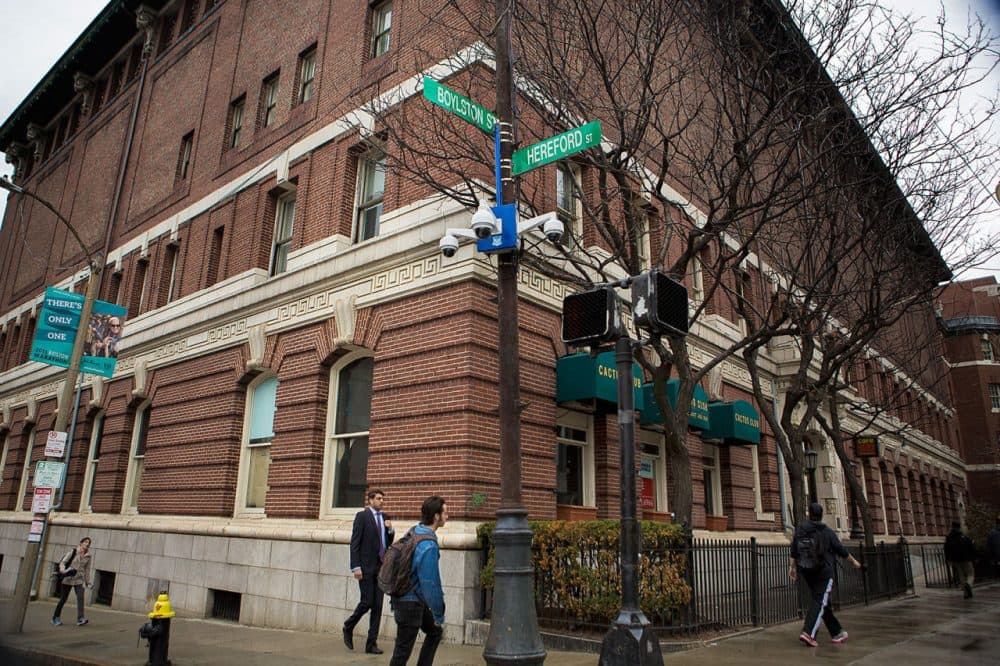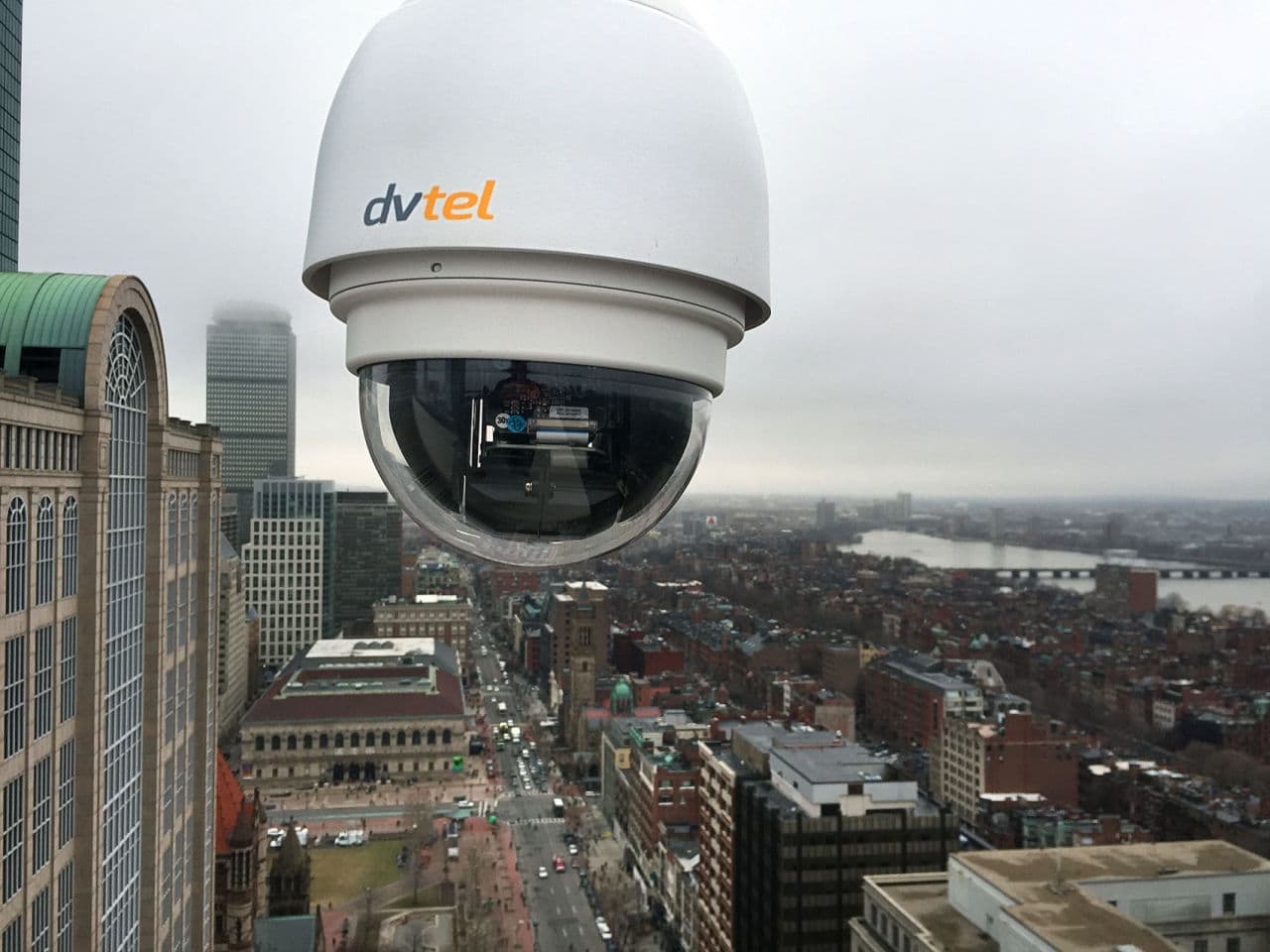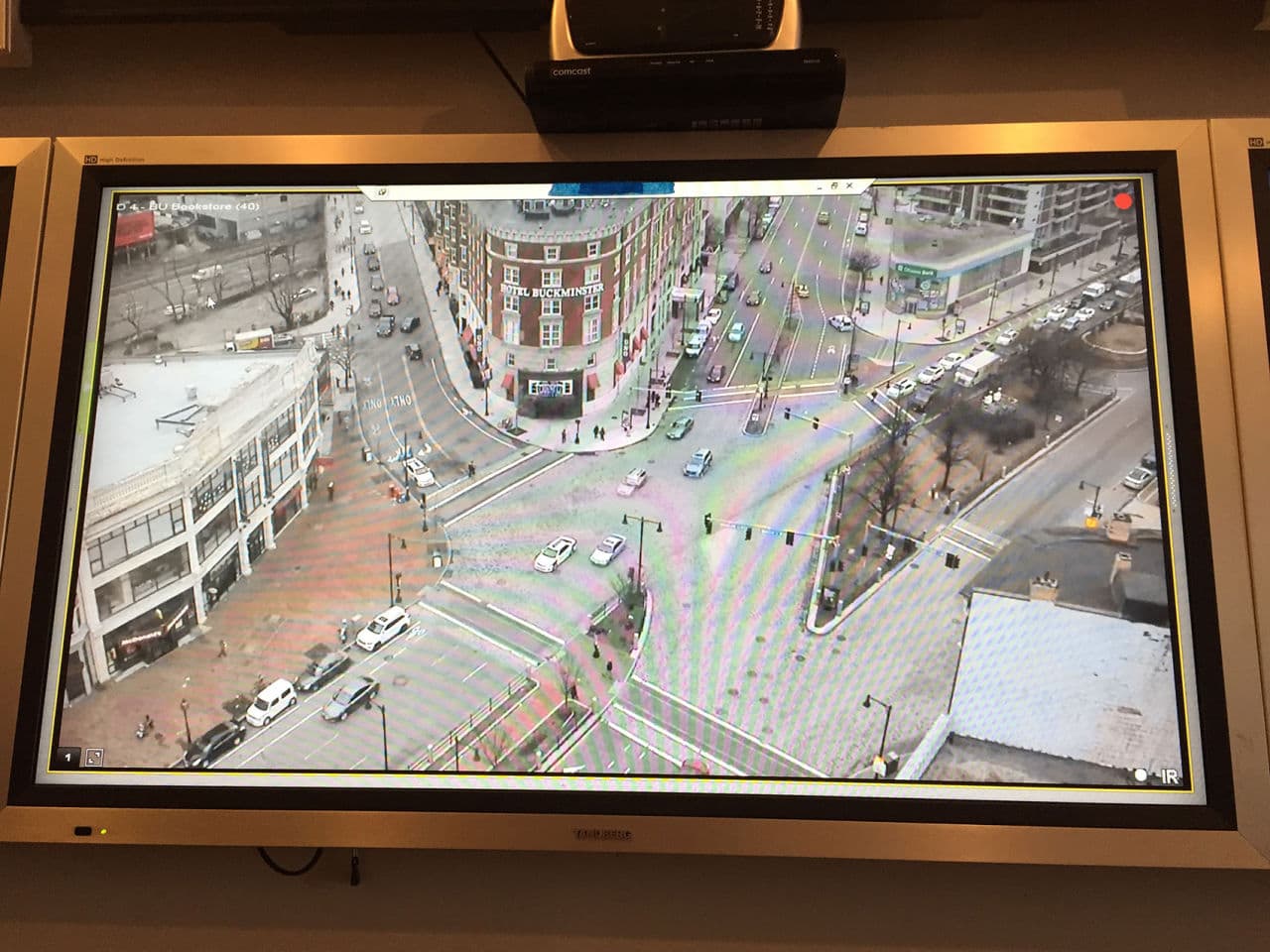Advertisement
Boston Police Use Marathon Security To Expand Video Surveillance Network
Resume
About 1 million people will line the streets to watch the Boston Marathon on Monday. And someone will be watching them.
Boston Police Deputy Supt. William Ridge says video surveillance is a big part of the marathon security plan.
"We’ve got a lot of cameras out there. We’re going to be watching the portions in Boston, particularly the routes along Boylston Street, the finish line," Ridge says.
That’s the area where two bombs detonated two years ago. Video footage helped authorities identify the terrorists. But some worry police are using marathon security to increase surveillance in the city.

On the roof of a tall office building overlooking the finish line, workers with Lan-Tel Communications install a high-definition video camera. The Norwood company is contracting for the Boston Police Department and marathon organizers.
Then at a satellite office at an undisclosed location in Boston, a tech worker links the newly installed cameras into a computer network.
Project manager Eric Johnson shows how police can remotely watch and control the cameras.
He uses a laptop to swivel and zoom an HD video camera in on the infield at Fenway Park. The camera is installed on a Kenmore Square building hundreds of yards away from the ballpark, but the picture is so clear Johnson said you could probably tell if a pitch was low and inside.

The same way your TV at home has gotten so much better, so have video cameras. Johnson says cheaper bandwidth and data storage make it easy to record more and better video.
"The wow factor in 2004 was being able to see a camera on a computer," Johnson says. "Now [for] a lot of the law enforcement that wow factor’s gone. It’s like, 'OK, OK, I can see the image, but what can you do for me beyond that?' "
There’s a lot they can do. Boston has programmed cameras to automatically turn toward the sound of gunshots. Ideally the software, Johnson says, could alert police when crowds form or when a certain suspect is recognized by a camera.
"They are not in every neighborhood, but I think they should be," he says.
Not everyone agrees.
Standing outside the Old State House, Kade Crockford, of the American Civil Liberties Union of Massachusetts, points out four separate surveillance cameras. This is the same spot where arguments in 1761 against British warrants inspired the American Revolution and the Fourth Amendment limiting search and seizure. Crockford says she understands the need for surveillance at a big public event like the Boston Marathon.
"That doesn’t trigger privacy concerns," she says. "What does trigger privacy concerns is the city of Boston installing a network of cameras, some in residential neighborhoods, that enable law enforcement to track individual people from the moment we leave our homes in the morning until the moment we return at night, seeing basically everywhere we went and everything we did."
Boston Police won’t say how many cameras are already in the city’s network, or how many new ones are going up for the marathon. But some of them will stay online afterward.
Ed Davis, who was Boston’s police commissioner two years ago during the marathon bombing, says dramatic video footage was crucial to winning a guilty verdict against Dzhokhar Tsarnaev.
"In my mind the debate is pretty much past now," Davis says. "The cat’s out of the bag. The video exists. The question now is: How do we protect people’s rights in the everyday application of the technology that’s already out on the street?"
Davis says the answer is to be vigilant.
In Boston, the city that runs a marathon on Patriots’ Day, commemorating the opening battles of the American Revolution, the right balance between public security and personal liberty is an ongoing search.
Correction: An earlier version of this Web report said the camera with a view of Fenway Park is in Kendall Square, not Kenmore Square. We regret the error.
This article was originally published on April 17, 2015.
This segment aired on April 17, 2015.
